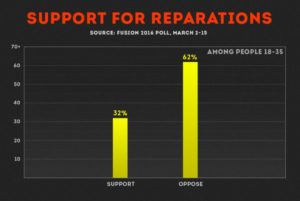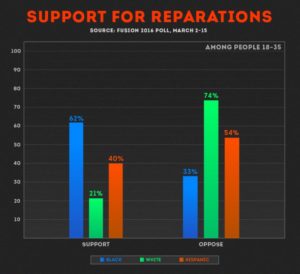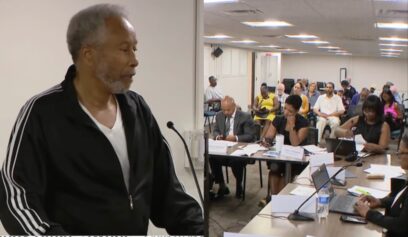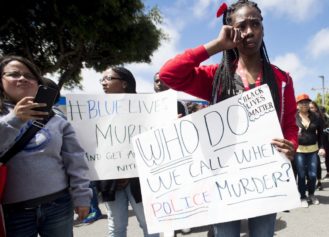
Statue of a child slave (Shutterstock)
A 2016 Fusion Issues Poll surveyed 1,045 adults from ages 18 to 35. The survey revealed how young people feel about a number of social justice issues related to race, especially reparations.
For example, 62 percent of young people say they are opposed to the government providing reparations to African-Americans for slavery, while 32 percent support the measure. However, the breakdown is much different along racial lines. For example, 62 percent of Blacks and 40 percent of Hispanics say they support reparations, while a paltry 21 percent of whites are in favor.
Moreover, even when it comes to a mere federal apology for slavery, 50 percent of young people overall support it, and 44 percent oppose it. However, that translates into 68 percent of Blacks and 59 percent of Hispanics in favor of a government apology, but only 44 percent of whites supporting the measure.
There are sharp divisions based on political affiliation and ideology as well. For example, 61 percent of young adults who say they are Democrats support an apology for slavery, compared with 51 percent of independents and only 31 percent of those who identify as Republicans. This ranges from 66 percent of very liberal young adults to 27 percent of conservative Republicans. Similarly, 49 percent of liberals support reparations, as do 40 percent of Democrats and 14 percent of Republicans.

The study puts these results in perspective by noting that millennials — who account for one-third of adults — are the most diverse generation in U.S. history. Only 56 percent are white, 21 percent are Latino and 13 percent are Black, with 10 percent other or mixed. Further, the youngest members of the millennial group, ages 18-21, are majority nonwhite at 52 percent, and 48 percent white. In addition, young adults poll higher on racial issues than adults in general. For example, 18 percent of adults favored reparations in a Kaiser Family/CNN poll conducted last August, and in an ABC News/Washington Post poll from 15 years ago, 42 percent of adults agreed with a federal apology for slavery.

When it comes to which presidential candidate they think will appoint more Blacks, Latinos and other groups to government positions, young people in general — including whites and Hispanics — chose Sanders over Clinton by a substantial margin, while Blacks were evenly split between the two candidates. Majorities across racial lines believe that the appointment of people of color is a strong reason to support a candidate for president.
Although young people are more diverse, more liberal and less conservative than older adults, the high degree of opposition to reparations is noteworthy. Even 38 percent of young Blacks in the survey did not support reparations. This is particularly significant, given that young people have been energized by the Black Lives Matter movement and are involved in all forms of social activism. And even as young people have been attracted to Bernie Sanders’ campaign, neither Sanders nor Clinton — nor any major candidate other than Green Party candidate Jill Stein — supports reparations. Voices such as Ta-Nehisi Coates have advocated for the compensation for Black people for slavery, but the issue is widely viewed as divisive, in a nation that still has its head in the sand on race, and has failed to come to terms with America’s legacy of high crimes, injustices and violations committed against Black people — both past and present.
The Black Lives Matter movement — propelled to prominence by the killing of young Black bodies — has led to a coalescing by some in society on the issue of race and the criminal justice system. A process of educating society on the racial inequities in America and the harm of institutional racism is unfolding. However, the question remains as to what it will take — what event or series of events — for the tide of public opinion to turn on the question of reparations for slavery. Given the existence of millennial racism, and unresolved issues of white privilege among white millennials — not to mention the racial hostility still exhibited by young whites against Black people on college campuses and elsewhere — there is much work to be done.


